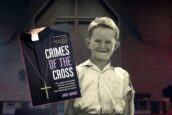
You love the past but can you do more?

It is the 40th anniversary of the Uniting Church in Australia, but looking back is something most of us already make a habit of doing. Just think about how everyone loves the past when it comes to movies. Historical epics capture our hearts, our minds and our wallets. Mark Hadley outlines three reasons for our emotional and spiritual connection with the past on-screen.
This year has seen the release of a library of historical pictures, chronicling characters and events both known and unknown. They range from Jackie to Viceroy’s House and Dunkirk. So, it seems we are hooked on stories about the past. Ever wondered why? Well, as a scriptwriter, I can tell you there are at least three clear reasons…
Rose-tinted time machines
Firstly, we love movies that sweep us off our feet and take us back to a simpler time. Everyone feels better about life when they’re seeing it in the rear vision mirror. Comfort films like Anne of Green Gables, Little Women and Stand By Me will continue to be watched because they beguile us with a longing for ‘the way things were’ – even if it was a period we have no personal experience of.
September saw the release of Victoria and Abdul. Judi Dench stars as the grumpy empress Victoria who, towards the end of her 64 years on the throne, struck up an unlikely friendship with an Indian servant. Victoria and Abdul’s determined friendship in the face of common convention suggests that we do tend to look back in a way that emphasises the characteristics we can most appreciate today.
Historical films act like rose-tinted time machines, allowing us to revel in a life we would have loved to have lived.
Rewritten history lessons
Historical movies also provide us the opportunity to look at things differently. They can transform our perceptions of a period — all the more so if we have no knowledge to re-shape.
June saw the release of Churchill, a biopic that revealed a largely unknown side of one of the greatest leaders of all time. Brian Cox starred as Winston Churchill during the final days leading up to D-Day. This drama’s rethinking of history came with the surprise that Churchill was vehemently opposed to the historic seaborne invasion.
Rewritten history lessons can help us value all the more the gains made by figures who have been overtaken by their own myths, and rehabilitate those who we fail to appreciate. The Christian missionaries sent to ancient Japan, chronicled in February this year by Silence, are not presented as heartless evangelists but those torn by the suffering their Gospel might bring.
Regret and release
The third reason we love historical films is because they allow us to feel bad and better at the same time. Schindler’s List, Saving Private Ryan, 12 Years A Slave, The Promise – each provides us with the opportunity to avow that the Holocaust is bad, war is bad, slavery is bad – and we recognise all of that! So, we revel in the outrage and then feel good about ourselves for doing so.
The problem with this sort of outrage is that we seldom let our righteous anger catch up with the present. Yet there are plenty of similar atrocities to choose from right now, around our world.
As Christians, we might often look on historical films as a safe option for a trip to the cinema. However, our responsibility to our history is not just to be inspired by it, but also to learn from it. The Bible repeatedly describes God’s people as those who don’t just repent of their sins, but also those belonging to the generations who preceded them. Similarly, God remembers every good and bad deed, and acts accordingly. The one question that has relevance as the lights come up on every historical film we watch is, ‘What might God require of me in the light of this?’






























































